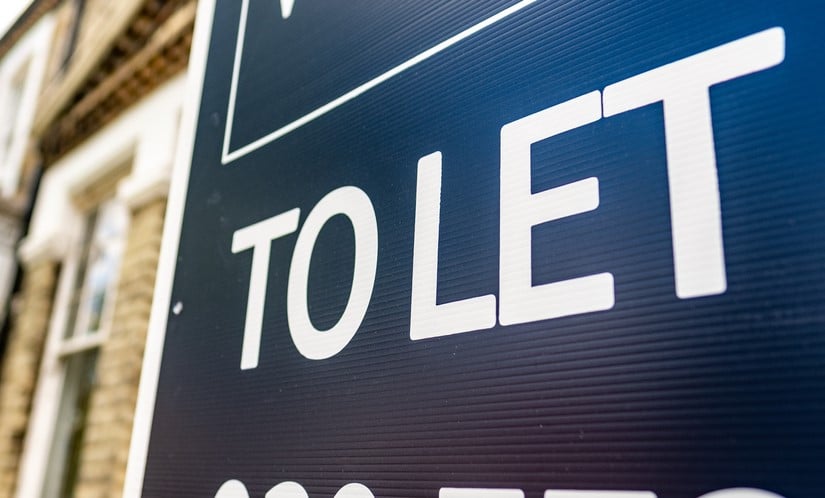
10:06 AM, 22nd May 2024, About 8 months ago 1
Text Size
The UK’s rent inflation is slowing down as average private rents grew by 8.9% in the year to April – down from a record high of 9.2% in March, the Office for National Statistics (ONS) reports.
This is the first time the annual rent inflation rate has eased since December 2023.
Despite the slowdown, rents remain much higher compared to last year.
England saw the highest average increase at 8.9%, followed by Scotland at 10.0% and Wales at 8.2%.
Northern Ireland, with data up to February, reported a 10.4% increase.
Propertymark’s chief executive, Nathan Emerson, said: “As many people continue to grapple with what has been a very challenging few years financially, the pressure remains for some renters.
“Ultimately, there are a few reasons why rents continue to rise.
“However, what we are seeing is many landlords who strive to provide high-quality accommodation currently being squeezed out of the sector due to aspects like elevated interest rates and proposed changes to background legislation.”
He adds: “Therefore, we need to see a much greater focus on ensuring the supply of homes meets current demand levels.”
The ONS data shows that regional disparities persist within England as London’s renters face the steepest rent rises at 10.8%, while those in the North East see a more modest increase of 5.8%.
The data also reveals a significant gap in rent prices depending on property size and location.
Detached properties command the highest average rent at £1,453, while flats and maisonettes are the most affordable option at £1,219.
Properties with four or more bedrooms are the most expensive at £1,920, compared to one-bedroom flats at £1,002.
Sarah Coles, the head of personal finance at Hargreaves Lansdown, said: “We’re still stuck in rental hell, with rents up 8.9% in a year.
“It’s marginally less painful than the record high of 9.2% the previous month.
“The number of new tenants has risen every month since the market reopened after lockdown. This is partly because houses are so unaffordable, so we rent far later in life.
“The other issue is that the number of households continues to grow, as the population increases and more people live alone, so there are simply more people who need somewhere to rent.”
The ONS also said that UK house prices are showing signs of recovery after a period of decline, with a provisional estimate of 1.8% annual inflation in the 12 months to March 2024.
This is a significant improvement from the negative 0.2% reported in February 2024.
The average UK house price in March reached £283,000, an increase of £5,000 compared to the previous year.
This trend of growth extends to all regions of the UK except London, where prices continue to see a slight decrease.
Yorkshire and the Humber saw the highest annual increase at 5.0%, while London experienced a 3.4% decline.
Pobinr
Become a Member
If you login or become a member you can view this members profile, comments, posts and send them messages!
Sign Up15:30 PM, 22nd May 2024, About 8 months ago
Its not a shortage of housing stock. 25 years ago 95% of applicants to rent my flats in Southampton were British.
Now around 60% are. There's too many people due to mass immigration thus driving rents up.
Legal net migration 745,000 last year =6230 new homes needed every week mostly squashed into England 😮
80% of migrants move into rental accomodation when they arrive in this country. Meaning 5000 more rental properties are needed every week 😮
Meantime our out of touch consocialist govn't are throttling the supply by hounding landlords with more tax, less rights to possession & more bureacracy 🤔
I've nothing against legal migration or migrants. But legal net migration now needs to be zero. One in one out. Our country's full. Motorways on brink of gridlock all the time. Urban sprawl everywhere. It has to stop